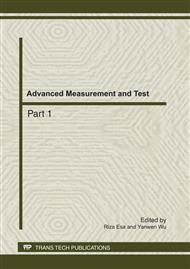p.666
p.671
p.677
p.682
p.688
p.691
p.695
p.701
p.707
Mining Successful Weight Loss after Bariatric Surgery by Using Multivariate Adaptive Regression Splines
Abstract:
Weight loss, after bariatric surgery, is not the only criterion but the significant outcome measure. Bariatric surgery is currently the most successful long-term treatment for morbid obesity. We aimed to evaluate weight loss in obese patients by using information typically reported in the initial evaluation carried out before bariatric surgery. A retrospective study of obese patients after bariatric surgery with two years' follow-up data was conducted. We analyzed the clinical information and laboratory data in the initial evaluation of patients experienced bariatric surgery for predictors. All data were analyzed by using multivariate adaptive regression splines. We have looked at 500 patients, consisting of 147 men and 353 women, for 2 years after operation. 427 (85.4%) patients successful lost weight (excess weight loss >50%) while 73 (14.6%) did not. MARS is a better modeling technique and the predictive accuracy is higher on the basis of multiple variables related to laboratory tests. Our findings demonstrated the significant result that obese patients of successful weight reduction after bariatric surgery were different operative methods, albumin, waist- hip ratio, HOMA, Insulin and Triglyceride.
Info:
Periodical:
Pages:
688-690
Citation:
Online since:
July 2011
Authors:
Price:
Сopyright:
© 2011 Trans Tech Publications Ltd. All Rights Reserved
Share:
Citation:


